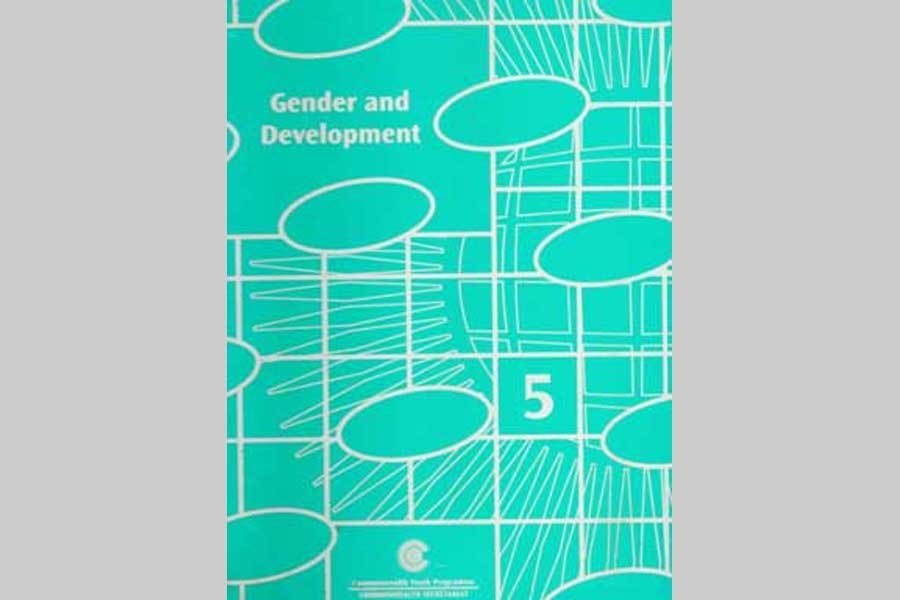Gender issue is considered a critical element in achieving decent work for all women and men, in order to effect social and institutional changes that lead to sustainable development with equity and growth. It is a way of looking at how social norms and power structures impact on the lives and opportunities available to different groups of men and women. Globally, more women than men live in poverty. Women are also less likely than men to receive basic education and to be appointed to a political position nationally and internationally. Most societies have the common problem of female subordination. This makes gender a very important issue in development work.
The Commonwealth publication 'Gender and Development' explores the theory and practice of how to ensure equal outcomes for young women and young men. It examines a range of theories in different development and feminist traditions, and explores the implications of such theories for youths in development work.
The module is divided into five units. The first unit explores the development issues that affect both women and men. It examines issues such as life expectancy, population, education, and health and youth unemployment. Life expectancy in developing countries is lower than in the developed ones. Gender imbalances in population are increasing in societies - especially in many Asian countries - where male children are preferred. Educational attainment rates vary from region to region. Developing countries are yet to realise their goal of universal primary and secondary education. Women experience more health problems than men because of their reproductive functions and other discriminatory practices. Adolescent girls usually face more health problems through drug abuse, unsafe abortions and STDs/AIDS. Youth unemployment is a serious problem for all young people and girls' rates of unemployment are generally higher than boys.
Unit-2 focuses on the problems caused by unequal access to resources for males and females. This chapter also examines the nature of the social and economic differences between men and women and shows how women are disadvantaged. Although women account for half the world's population, their work in many societies is not given as much importance as the work performed by men. Gender discrimination still exists in both developed and developing countries. The United Nations adopted a 'Convention on the Elimination of All Forms of Discrimination against Women' in 1979 that can be used as a guide to monitor progress towards gender equality in society.
The third unit examines the concept of gender and development in detail and discusses a number of development theories. Gender is a social and not a physiological concept. Both masculine and feminine gender are terms that refer to a set of characteristics and behaviour that are prescribed for a particular sex by society, and learned through a socialisation process. This unit also highlights feminist contributions to development theory and explains the concept of gender as a tool for analysing development work. Feminists have always stressed that the development process affects women and men differently, and they generally agree that women have not benefitted sufficiently from development. This has led theorists to try to establish ways in which the disadvantaged position of women can be improved. Since 1970, a number of strategies and approaches have been devised to address this problem of women's disadvantage. Among them 3 are very popular: i) Women in Development (WID) school of thought; ii) Women and Development (WAD) school of thought; and iii) Gender and Development (GAD) school of thought. The GAD concept differs from WID and WAD which mainly tries to analyse the role and contribution of all members of a community - not just the women - to the development process, and focuses on differences and disparities in their conditions.
Unit-4 focuses on the importance of gender awareness in youths in development work. This unit also discusses about gender as a tool for analysing youth in development work. For any development project or programme to succeed, gender awareness must be created at the design, planning, implementation and evaluation stages. It is also important to realise that in every situation there are females and males whose needs are different, and these needs should be catered for when we devise development projects and programmes. As the readers go through this unit, they will come across a number of case studies and activities which are designed to help them apply the knowledge in practical contexts.
The last unit of the module examines a number of feminist theories including those developed in the Western industrialised countries, those developed by black women in industrialised countries and by women in the developing world. We know that in many societies, women and men have quite different experiences of the same world in terms of work, access to education, healthcare and social power. In many of these societies, women have a low status in comparison with men. Relationships between men and women seem to give men more power than women. These differences have led to the development of a range of feminist theories which try to explain how and why women have become subordinated. Feminist theories also attempt to analyse the processes through which women's subordination is carried on from generation to generation. They also suggest strategies and solutions to end inequality between men and women.
In the last section of the module, the writers include two appendices: 1) The UN Convention on the Elimination of All Forms of Discrimination against Women 1979; and 2) Extract from CYP publication, Assessing the Status of Women: A Guide to Reporting Under the Convention on the Elimination of All Forms of Discrimination against Women. These readings might help the readers expand their understanding of gender related issues in development work.
S.M. Rayhanul Islam is an independent researcher.


